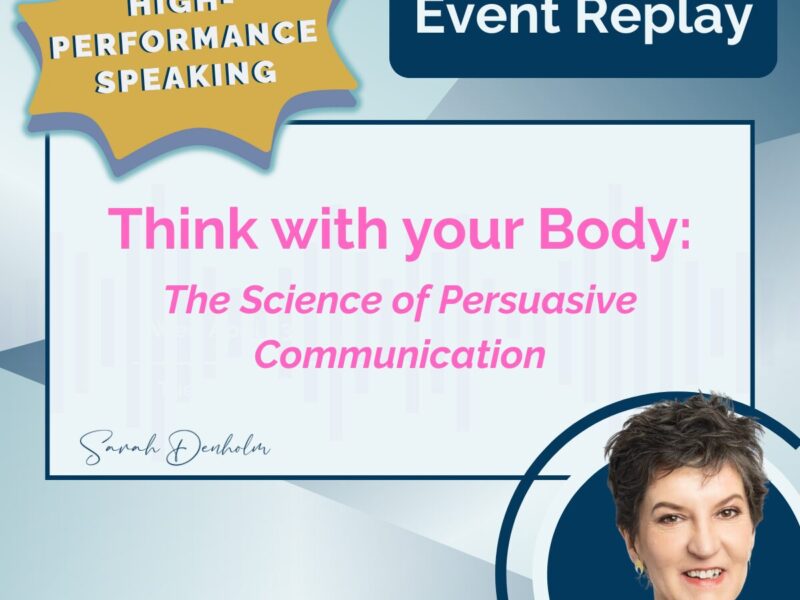
In my article last week I gave you an overview of 7 Skills of Every Good Speaker, from which I’ve created the acronym C.R.I.S.P.E.R (clear, relevant, insightful, succinct, practised, energetic, respectful).
Here’s my take on the first skill: clarity.
On finishing reading a book: “confused, but in a more profound way” – Lily Tomlin
Isn’t this a great quote? Too many speakers leave audiences feeling this way. If you’re speaking, and not completely clear in your own mind about your core message and sub-points, and you don’t deliver them in a logical order, your audience will be confused. Here are some ideas to help make sure this doesn’t happen to you.
Here’s an analogy for you: a couple of years ago we bought a Tivo, which records TV programs to a hard drive. It’s great – easy to use, and with features such as the ability to pause live T.V. if the phone rings. One of its handiest features is a button which rewinds 9 seconds, so if you miss a piece of dialogue, you can listen to it again…and again, if you want to.
But if we’re in your audience we can’t press a rewind button! So if we don’t understand a point, it’s too late – you’ve moved on. And confusing us audience members isn’t hard to do; with all the competing demands on our attention nowadays, it can be struggle to stay focused – especially as many of us are now multi-tasking, using our laptops or tweeting during the presentation. That’s why it’s so important when you speak to groups to work on being clear.
Here are 7 common mistakes I see all the time:
- you don’t put in enough thinking time to refine your topic and ‘hone’ your core message, before you present
- you don’t finish a thought properly, before moving on. Give us a complete idea, with your argument’s reasoning made crystal clear to us, before you go to your next point. By the way, this isn’t a green light to expand luxuriantly on each point – you still need to edit (see mistake no. 6 below) mercilessly! What’s important is to think through each of your arguments carefully as your prepare.
- you don’t practise out loud. This is vital to hear clearly where your arguments don’t make logical sense when you actually hear them hanging in the air – this was one of the things which made the greatest improvement to my speaking once I started to put in the effort to chat to the microwave!
- you have an illogical order – again, this will become clear if you say your points aloud. Don’t be like some of the commercial television stations here in Australia, which seem to love confusing their audience by running episodes of a series out of order: it’s disorientating, aggravating , and like using the T.V. remote, your audience will tune out and switch off!
- you don’t give us clear verbal transitions between points, or what I call ‘signposts in the sea’ (see my article Why and Where to use Silence during your presentations) e.g. “I’ve just mentioned X; now let’s move onto Y”.
- you don’t edit your words. Once you’ve got your draft – if that’s appropriate for your style of speaking – start whittling away at all the non-essential words or thoughts. Edit down to the nub of each point; if each point were a car tyre, it should be heading towards bald! You’ll probably flesh it out again as you speak anyway, I know I do, but the ability to do that and remain clear only comes with editing first.
- You don’t use analogies, metaphors or stories: I used the example above of a Tivo rewind button to create for you a concrete example of the importance of clarity. The word ‘clarity’ in itself is abstract, you can’t literally touch it or see it – so I created an example, to help do that for you. Can you create your own clear examples for us?
So bear in mind that your audience members don’t have a rewind button, and do them, and yourself, a favour by being super-clear about exactly what you mean and why you mean it. We will thank you for it.




